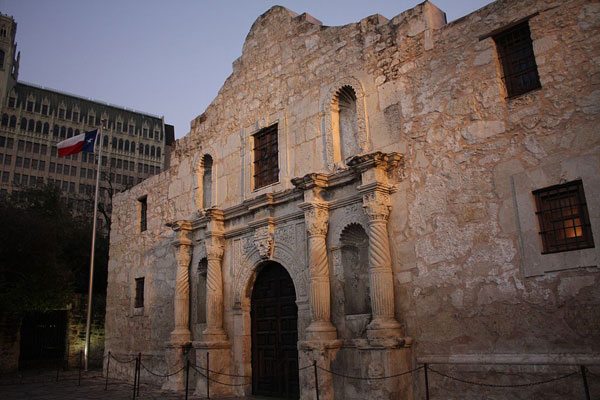
December 4, 2017; Texas Monitor
For Texans, the cry of “Remember the Alamo!” recalls a legendary 1836 battle in Texans’ war of independence against Mexico. Now, “Reimagine the Alamo” is the rallying cry for an emerging $450 million effort to restore the building’s aging structures and reclaim the surrounding battleground. That effort is being fought on a new battleground—one of ethics, transparency, and the very nature of nonprofits.
In 2015, a vision of a restored and enhanced Alamo brought together a complex alliance of public and nonprofit organizations to develop and implement what has become a major capital project. The effort, led by Texas Land Commissioner George P. Bush, was recently described by the Texas Monitor as “a marriage of public funds through General Land Office [GLO], private money raised by the Alamo Endowment, and the Remember the Alamo Foundation—and secrecy.”
What makes this alliance troublesome is that it appears these nonprofit organizations were created not to fulfill unique missions but to shield the workings of a public project from the eyes of the public. While there are several nonprofits involved, they are governed by boards appointed by the same person—Commissioner Bush—and comprise the same people. According to the Monitor, the commissioner chairs each board, and in that role “signs contracts and memoranda of understanding with the GLO [his own public office]. ‘This creates a potential conflict of interest, and competing fiduciary duties,’ former Land Commissioner Jerry Patterson asserted. ‘In the event of a dispute between the parties, Bush cannot possibly fulfill his obligation as chair/board member, nor can he fulfill his fiduciary duty to either party,’ Patterson charged.”
Sign up for our free newsletters
Subscribe to NPQ's newsletters to have our top stories delivered directly to your inbox.
By signing up, you agree to our privacy policy and terms of use, and to receive messages from NPQ and our partners.
The benefit of this organizational framework is quite clear. Rather than directly operate the Alamo, the Land Commission has chosen to contract with the nonprofit Alamo Complex Management, which the Commissioner chairs, to operate the historic site. For Commissioner Bush, this provided a mechanism to keep a campaign promise of reducing the size of his office without making a real change in operations. In 2015, the land office laid off 70 workers and ACM took 70 new employees using state funds. Former land commissioner Jerry Patterson told the Monitor, “Bush’s creation of and delegation to the ACM fuels suspicion of laundering money and hiding employees.”
The Texas Monitor observed that “by directing three not-for-profit ‘private partners,’ Bush has effectively assigned competing fiduciary duties to himself—an arrangement that’s raised fiscal and ethical questions about Alamo operations.” When reporters tried to attend a recent board meeting of one of the nonprofit partners, the Alamo Endowment, they were told that “there was no Alamo Endowment meeting [but] there were meetings of the Alamo Trust and Remember the Alamo Foundation boards.”
If providing a way to hide the workings of his office and of the Alamo redevelopment was not the reason this structure was created, what then might it be? At a recent hearing of the legislative committee that oversees his office, Commissioner Bush explained the structure he had created on “the advice of counsel, in part to protect board members ’from liability.’” State Sen. Joan Huffman said “she was…perplexed by the liability issue, noting that the Alamo is owned by the state, which has sovereign immunity.”
There are reasons close partnerships should be created between government and nonprofit organizations. When each party comes to the table with its own mission to fulfill and operates independently, all are served well. When nonprofit structures are used as pawns, the public is not served well and the overall health of the nonprofit sector is harmed.—Martin Levine













